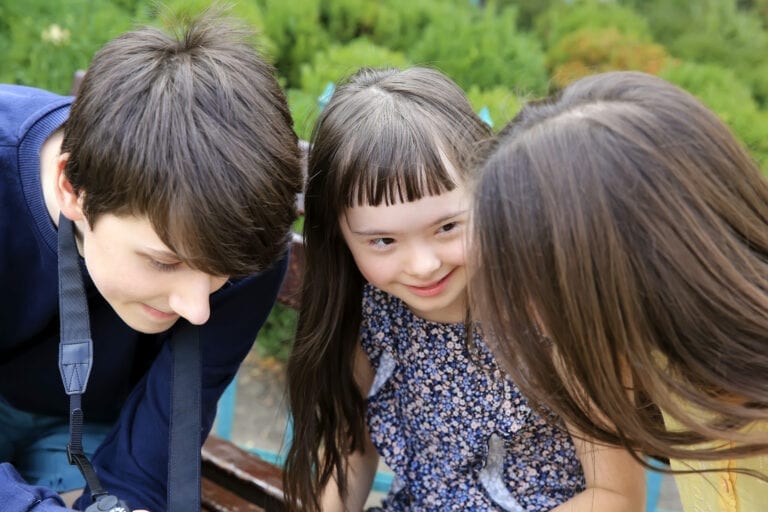As we age, maintaining physical and cognitive health becomes increasingly important. As our bodies change and our minds age, we must care for ourselves to live happy and healthy life. The good news is that there are many things older adults can do to maintain physical and cognitive health. This blog post will discuss tips for keeping the body and mind in shape as we age.
A brief overview of the main tips that will be discussed in the blog post
One of the most important things older adults can do to maintain physical health is to exercise regularly. Exercise is crucial for maintaining mobility, preventing chronic diseases, and keeping the body in good shape. Some types of exercise that are particularly beneficial for older adults include walking, swimming, and yoga. Proper nutrition is also important for maintaining physical health in older adults. Eating a diet rich in fruits, vegetables, and lean protein can help to prevent age-related health issues such as heart disease and osteoporosis.
Cognitive health is just as important as physical health, and there are many things older adults can do to maintain cognitive function. Mental stimulation is crucial for keeping the brain sharp, and activities such as reading, puzzles, and playing games can help. Social engagement is also important for cognitive health, as social interaction helps to keep the mind active and engaged. Stress management is also important for mental health in older adults, as high-stress levels can contribute to cognitive decline.
In this blog post, we will discuss these tips in more detail. We will explore the importance of regular exercise, proper nutrition, regular check-ups and screenings for physical health and mental stimulation, social engagement, and stress management for cognitive health. We hope these tips will help older adults maintain good physical and cognitive health as they age.
Physical Health
When it comes to maintaining physical health in older adults, regular exercise is one of the most important things you can do. Exercise is not only good for the body, but it’s also good for the mind. It helps to maintain mobility, prevent chronic diseases, and keep the body in good shape.
Types of exercise recommended for older adults
The types of exercise recommended for older adults include walking, swimming, and yoga. Walking is a great form of low-impact exercise that can help to maintain cardiovascular health and improve balance. Swimming is a great exercise for older adults because it’s low-impact and easy on the joints. Yoga is also a great form of exercise for older adults, as it helps to improve balance, flexibility, and muscle strength.
Proper nutrition
Proper nutrition is also important for maintaining physical health in older adults. Eating a diet rich in fruits, vegetables, and lean protein can help to prevent age-related health issues such as heart disease and osteoporosis. It’s also important for older adults to get enough calcium and vitamin D to maintain bone health. A healthy diet can also help to maintain a healthy weight which is an important factor in preventing chronic diseases such as diabetes, hypertension, and cancer.
Regular check-ups and screenings
Regular check-ups and screenings are also important for maintaining physical health in older adults. Preventative care can help to catch health issues early on when they are more easily treated. Common health screenings for older adults include screenings for colon cancer, breast cancer, and prostate cancer. Other screenings that may be recommended for older adults include cholesterol and blood pressure checks and screenings for diabetes, osteoporosis, and depression.
In conclusion, regular exercise, proper nutrition, and regular check-ups and screenings are essential for maintaining physical health in older adults. Maintaining an active lifestyle, eating a healthy diet, and taking preventive measures to maintain physical health is important. These tips allow older adults to stay healthy and enjoy their golden years.
Cognitive Health
Cognitive health is just as important as physical health, and there are many things older adults can do to maintain cognitive function. One of the most important things is mental stimulation.
Mental stimulation
Keeping the brain active and engaged is crucial for maintaining cognitive function, and activities such as reading, puzzles, and playing games can help. Engaging in lifelong learning activities, such as taking a class or learning a new skill, can also help to prevent cognitive decline.
Social engagement
Social engagement is also important for cognitive health. Social interaction helps keep the mind active and engaged, and studies have shown that older adults with strong social networks are less likely to experience cognitive decline. Maintaining social connections is important for preserving cognitive health, so finding ways to stay connected with friends and family, whether through phone calls, social media, or in-person visits, is important.
Stress management
Stress management is also important to maintaining cognitive health in older adults. High-stress levels can contribute to cognitive decline, so it’s important to find ways to manage stress to keep the mind sharp. Stress management strategies include exercise, mindfulness, and relaxation techniques such as yoga and meditation.
In conclusion, maintaining cognitive health in older adults is crucial for living a happy and healthy life. Engaging in mentally stimulating activities, fostering social connections, and managing stress are all important ways to preserve cognitive health. Older adults can enjoy a better quality of life by taking steps to maintain cognitive health.
Conclusion
In this blog post, we have discussed some tips for maintaining physical and cognitive health in older adults. We have looked at the importance of regular exercise, proper nutrition, and regular check-ups and screenings for physical health, as well as the importance of mental stimulation, social engagement, and stress management for cognitive health.
Summary of the main tips for maintaining physical and cognitive health in older adults
- Regular exercise: Engage in regular exercise such as walking, swimming, and yoga to maintain mobility, prevent chronic diseases, and keep the body in good shape.
- Proper nutrition: Eating a diet rich in fruits, vegetables, and lean protein can help to prevent age-related health issues such as heart disease and osteoporosis.
- Regular check-ups and screenings: Preventative care can help to catch health issues early on when they are more easily treated.
- Mental stimulation: Engaging in mentally stimulating activities, lifelong learning, and games can help to maintain cognitive function.
- Social engagement: Foster social connections to keep the mind active and engaged and to preserve cognitive health.
- Stress management: Engage in techniques such as exercise, mindfulness, and relaxation techniques such as yoga and meditation to keep the mind sharp.
Encouragement for older adults to prioritize their health and take action to improve it
We want to encourage older adults to prioritize their health and take action to improve it. It’s never too late to start taking care of yourself, and it’s always possible to improve your health and well-being. Many resources are available for older adults looking to improve their physical and cognitive health, including government websites, health organizations, and local community centers that offer classes, support groups, and other programs. Additionally, consulting with healthcare professionals can provide more personalized recommendations and guidance.
Maintaining physical and cognitive health in older adults is vital for a happy and healthy life. Following the tips outlined in this post, older adults can stay active, engaged, and healthy as they age.
Home Care Near Me. Let’s Get Started!
Get Immediate Help with Information, Costs & Payment Options.







